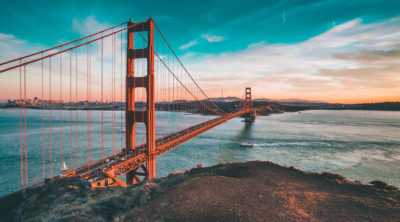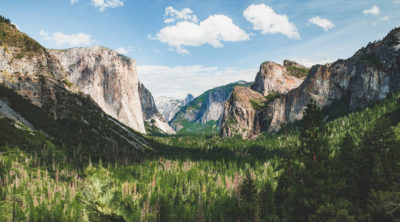
A road trip can be as cheap as you want it to be. There are several easy ways to save money on a road trip, which if implemented in time, can save you a hundred dollars if not more. These tips are indeed your saviors. Check them out!
Proved!
According to the U. S. Department of Energy, aggressive driving (speeding, rapid acceleration, and braking) wastes gas. It can lower your gas mileage by 33% at highway speeds, and by 5% around town.
At least once in your lifetime, a road trip is a must. You must undertake a trip where you drive from one place to another, discovering new places, people, and cultures along the way; just you and the road. However, planning it well will determine whether your trip will be a dream come true or a nightmare. Road trips might look like cheaper alternatives to flying, but trust me, it’s very easy to lose control with the expenses. You need to have an extremely frugal approach towards gas, food, and accommodation expenses.
Understand
A road trip can be two-day long, a cross-country one that spans 2-3 weeks, or one that has no destination. Whatever the duration of your trip, cut down on your expenses with these tips.
Saving Money on Gas
- Gas cards can save you a lot of money. Many hotels offer free gas cards if you book with them. Since gas is crucial to your trip, saving money on gas reduces your total expenses considerably.
- Various credit cards offer gas rewards; these are ideal for frequent travelers. These cards earn you few points every time you refuel; basically, they promise some money back.
- Maintaining the condition of your car also helps increase gas mileage. Inspect tire pressure; keep it at the manufacturer’s recommended PSI. Also, get the brakes and warning lights checked. Don’t forget the oil and the coolant.
- To further improve gas consumption, remove excess weight from your car; anything you don’t need for your trip can be excluded. As usual, list all the things you want to take with you, and then, narrow down the list to half.
- Cruise control is highly recommended on a road trip, this can save a few dollars easily. It’s alright to go slower than you think.
- Use road trip apps such as GasBuddy to compare gas prices, and fill up at cheaper stations. If you’re doing a cross-country, check for prices before crossing the border, and fill at the cheaper state.
- Avoid traffic; leave home early. Traffic jams can drastically eat up on your fuel consumption. Avoid roads that have traffic problems; use Google maps once you hit metropolitan areas.
- Aggressive driving―breaking continuously, sudden acceleration, and racing―reduces your gas mileage more than anything else. Hence, relax, and opt for cruise control.
- Always fill the recommended grade of gasoline. Sometimes, a particular grade may be ‘preferred’, but don’t get confused. Understand the difference between ‘preferred’ and ‘required’.
Saving Money on Mode of Transport
- Before you decide whether to rent a car or take your own, estimate the total gas expenses for your car.Fuel Economy―the U.S. Government’s official source for fuel economy information―helps you calculate this price depending on the distance you need to cover, your car’s make, model, and age.
- Now, comparing costs, renting a car might give you better mileage and maybe some more space as well. A fuel-efficient car must be your top priority during this trip.
- If you decide to rent a car, rent one from an agent who gives you some benefits―a few gallons as a reward, temporary membership to a nationwide motor club (get this anyway), or perhaps a few free miles.
- Sometimes, auto-insurance policies on owned cars also cover rental cars. If you happen to rent a car for a long-distance road trip, speak to your insurance agent about this.
- If you’re traveling for several days, say more than two weeks, consider hiring an RV. RVing helps you save on accommodation and food. Prepare a budget for food and accommodation, compare that to hiring an RV, and then make your final decision.
- Don’t hesitate to explore options when it comes to transport. In some cities, it may be wiser to use a bicycle or a motorbike. You can use the car just for the highway.
Saving Money on Accommodation
- You can find accommodation for cheap if you plan your trip a little in advance. You can then go through several offers, discounts, and packages.
- However, what many people don’t know is that sometimes hotels slash prices last-minute. If you visit a hotel on the night of your check in, you might find an extremely inexpensive deal.
- These last-minute deals, however, depend entirely upon chance. Hence, if you’re traveling with kids, it’s safer to make your reservations in advance.
- One option that is hardly followed is to keep checking discounts even after you’ve made your reservations. Sometimes, you might stumble upon a deal that is so cheap that even after canceling your initial booking, you might still end up saving.
- Prefer camping as much as possible; you’ll be pleasantly surprised to know how much you save. Visit the Federal government’s official website, which takes care of camping and recreation in all cities. You’ll find some of the best deals here.
- Avoid the obvious weekends, such as Labor Day, to find cheaper accommodation. Planning your halts mid-week will help you save drastically.
Saving Money on Food
- Always, always make it a point to eat at local restaurants, rather than chain hotels. This is, if you want to stop somewhere for a meal. Packing meals at supermarkets is a great option otherwise. Skipping sit-downs is always a wise decision.
- Carrying a cooler on the trip is a great idea to save more money. You can store a range of foods in the cooler; ice packs can be changed at every halt or at gas stations.
- A lot of hotels have a ‘kids can eat free’ option. Find these hotels/restaurants before you hit the city. This can help you save a lot. Don’t hesitate comparing even these with locally available food.
- Packing some snacks from home for a shorter trip is a great idea. Pack things that don’t get spoiled easily. If you do happen to pack some of these, consume them before the rest.
- A few things worth packing are almonds, trail mix, bananas, baby carrots, dried fruit, granola bars, popcorn, homemade cookies, etc.
Saving Money with Passes
- There are a lot of passes that can help you save hundreds every year if you’re a frequent traveler. For example, the National Parks Pass gives everyone in your car an entry to all the National Parks in the country.
- Similarly, a pass covers certain museums. This can be beneficial especially if you travel with your kids. The trick is to get maximum attractions for free or at discounted rates.
- Groupon is your best bet when it comes to saving money on food in multiple cities. For food and dining, there is nothing better that you can lay your hands on, specially because of its multi-city presence.
Saving Money with Apps
- Today, various travel apps are available for free, and they’re all equally helpful in the different sectors they serve. We’ve already spoken about GasBuddy―an app that helps you save fuel costs.
- Similarly, look for apps that offer discounts on meals in various cities. Food takes up a large chunk of your budget; cutting down on it with online deals is a great option.
- Install a weather app to keep you updated with your next halt’s weather. In case there is a snowstorm, hurricane, landslide, etc., you can extend your stay at the previous halt and cut traveling costs.
- Then, with apps like Yelp, you can find nearby grocery stores, hospitals, pharmacies, etc. You no longer feel lost in an unknown city. Such an app will make sure you don’t drive around aimlessly.
Saving Some More
- Use Google Maps, and avoid roads for which you have to pay a toll. However, before you avoid these, check the alternative route. Is that costing more? Decide likewise.
- If you’re traveling with a group of people, let one person handle all the bills. He will collect all the bills for contribution analysis later. The best way is to write the payee’s name on respective bills.
- Out-of-network fees on withdrawals will add up and take a toll on your already-existing budget woes. To tackle this problem, ask your bank for a map of all the in-network ATM locations on the route you’re taking.
- Though using apps may seem like a wise option, and is indeed a great way of traveling, use them efficiently. Don’t let network charges leave you dumbfounded later on. Instead of GPS, use a Rand McNally Road Atlas and drooool.
Cutting down on unnecessary halts will further reduce your expenses. Saving money on a road trip isn’t difficult if you search for alternatives and options prior to hitting the road. With these easy ways, make your road trip a wonderfully inexpensive affair. Happy Journey!


